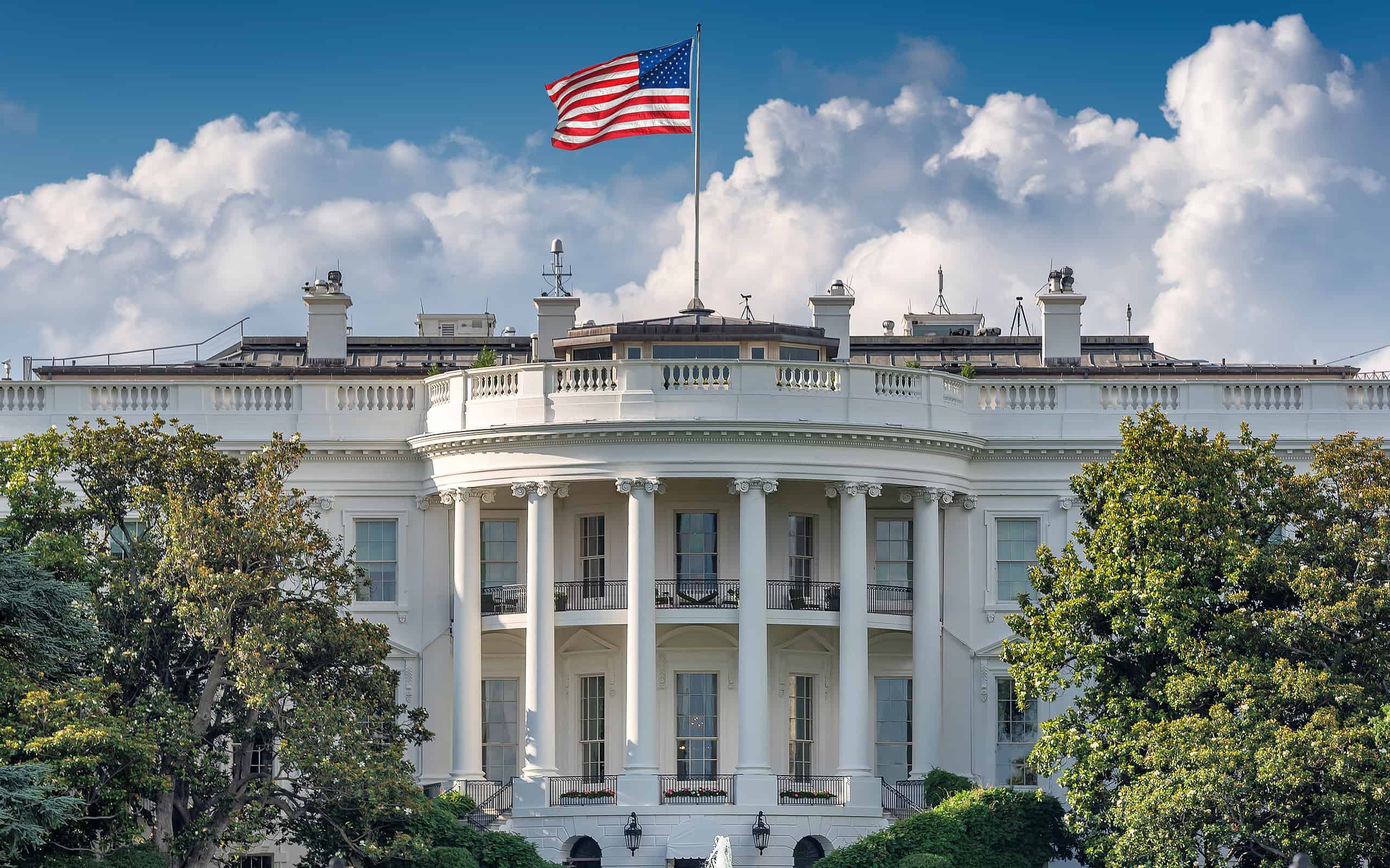Democracy is a form of government where the citizens have a direct say in the direction of their society — it’s government “for the people, and by the people,” as it’s said.
The United States, with the story of its Constitution and War of Independence, is perhaps the world’s most famous modern example of democracy. It’s the place that people often think of as the birthplace of this form of government. That being said, there are several places in the ancient world that presaged this democracy for hundreds, if not thousands, of years.
Determining the exact sequence of when countries became democratic can be an imperfect and messy process. This is partially because many entities use different kinds of criteria in order to assess the democratic status of a place.
For example, elements of contemporary democratic practice are likely to have existed in many pre-industrial cultures. This was likely the case around the world for centuries. However, scholars agree that several places are early democracies in a formal sense. Here are some examples of such places.
Examples in the Ancient World
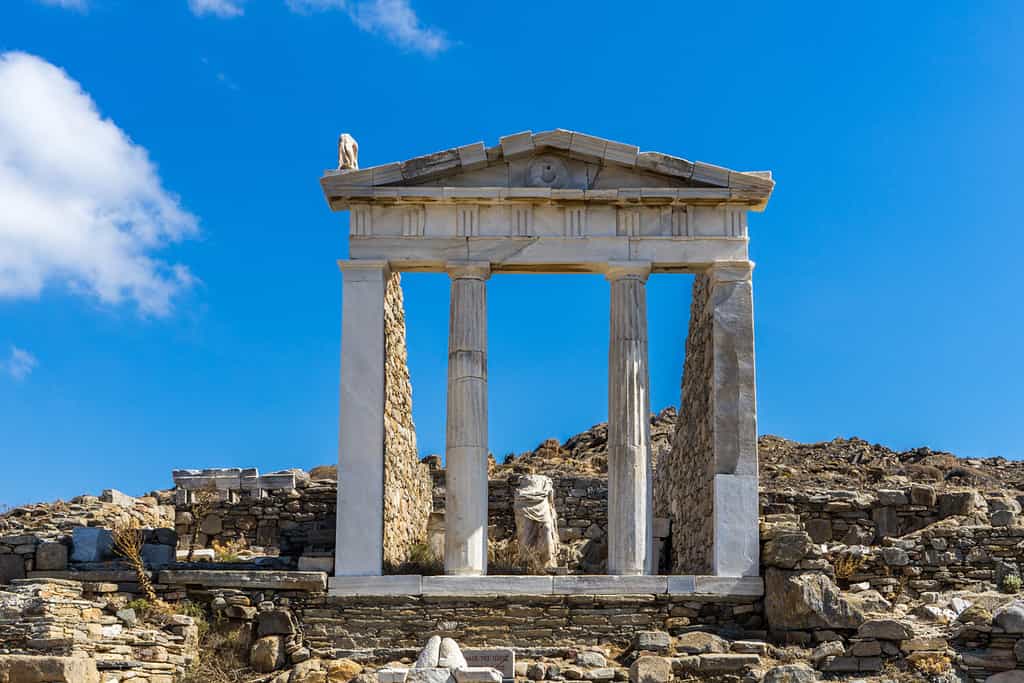
Ancient Greece is one of the ancient centers of democracy.
©Dimitris Panas/Shutterstock.com
Ancient Greece is often named as the birthplace of democracy in the Western world. Many of its more notable city-states held democratic practices that aren’t too different than the kinds we see in modern society.
In particular, the Greek city-states of Athens and Sparta were instrumental in the development of a formalized democratic practice. Athens is pointed to as the birthplace of democracy in the way that we know it. Scholars have learned much about the history of democracy in ancient Greece by studying the works of several figures from there. These people still influence the philosophy surrounding the practice of democracy. Prominent examples include the philosophers Plato and Aristotle.
The Republics of Ancient Rome were probably the closest example that we have in terms of a functioning democracy in the ancient world. It shared many qualities with our own of the modern era. In fact, many of the world’s congressional senates are basically modeled exactly on those of Ancient Rome. Rome itself took inspiration from the democratic practices of the Ancient Greek societies that preceded it in the Meditteranean region.
The Iroquois Nation of Native Americans also practiced forms of government comparable to today’s modern democracies. In fact, many historians believe that the founding fathers of America took heavy inspiration from an Iriqouis document known as The Great Law of Peace.
1. The United States
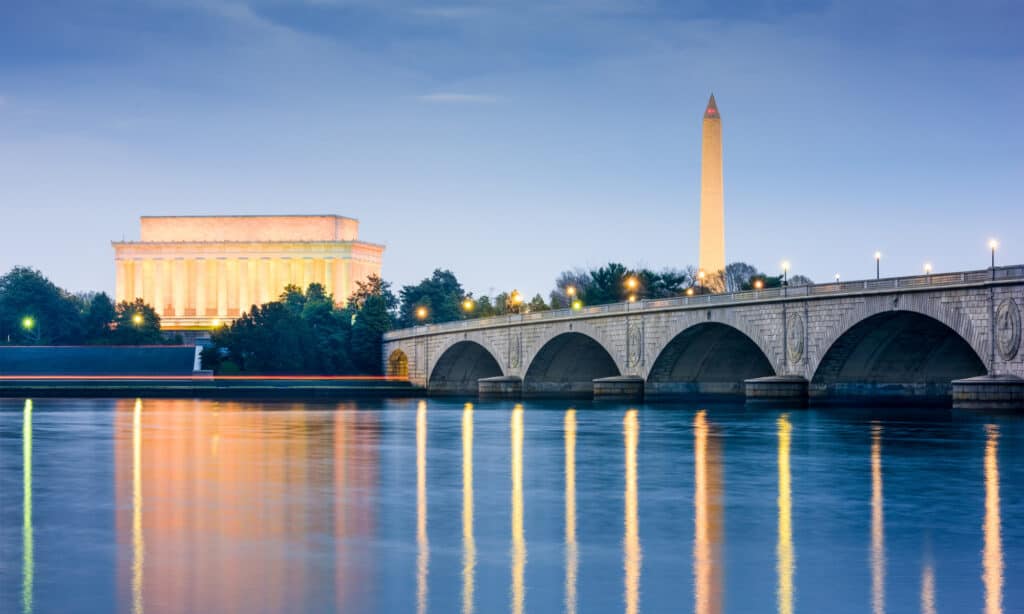
Washington, D.C., is symbolic of democracy around the world.
©iStock.com/SeanPavonePhoto
The United States is the world’s most famous example of a modern democracy. The foundations of its government have served as a model for other countries, especially for those who wish to adopt democratic practices into their own systems.
The seeds of modern democracy in the United States arose in its Independence movement from the crown of Great Britain. The founding fathers crafted a constitutional bill of rights that guaranteed certain privileges to all of its citizens. Historians point to the year 1788 as the birth year of the American democracy.
The government of The United States is split into an executive, legislative, and judicial branch. This division of powers is designed to prevent excessive concentration in any one of the branches.
2. Switzerland
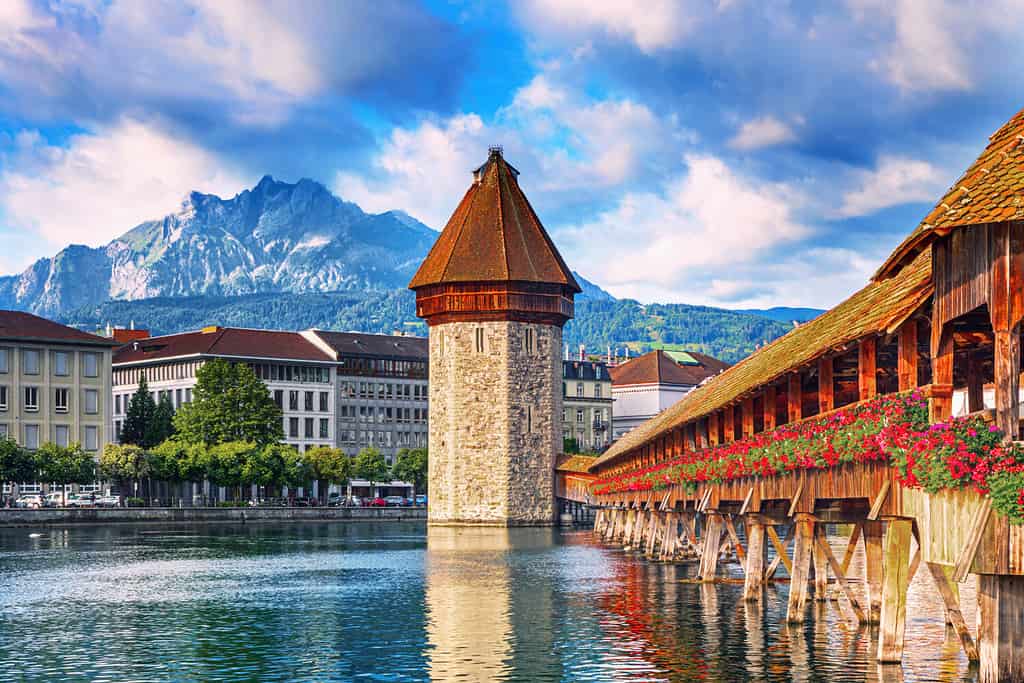
Switzerland practices a unique form of direct democracy.
©Rasto SK/Shutterstock.com
This is a country with one of the world’s highest qualities of life, with a price tag that’s just as high. It’s also one of the world’s oldest democracies, having ratified its constitution in 1848.
The Swiss administrative system is separated into 26 districts known as cantons. These are federated states that have high degrees of autonomy from each other. Each one of these countries has its own Parliament and constitution.
The Swiss form of democracy is unique in many respects. It is probably the most notable example of a nation that utilizes direct democracy rather than representative democracy. That is, the citizens of the country and its districts vote directly on the issues that affect them. They do this rather than appointing elected officials to represent them on these issues.
3. New Zealand
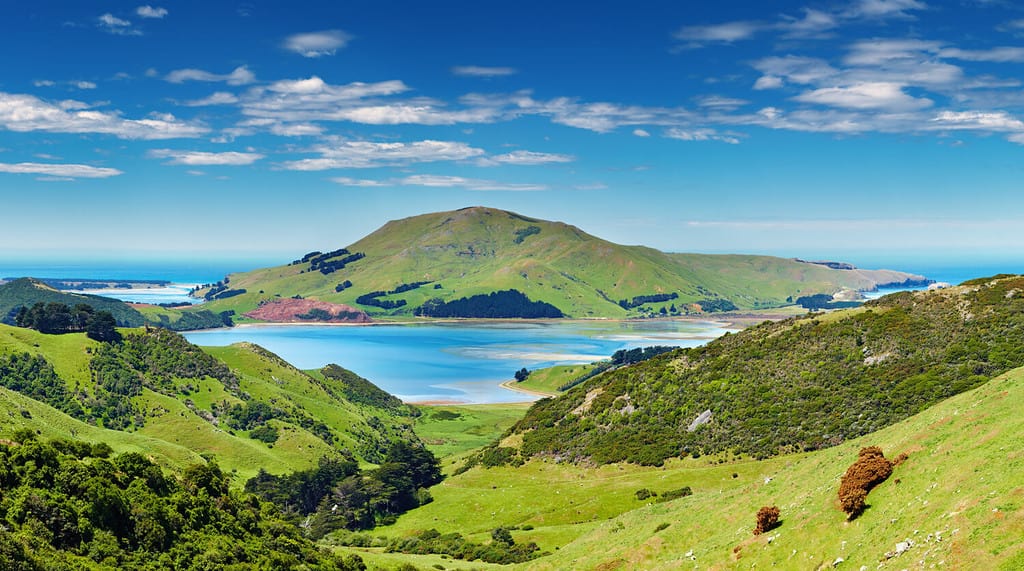
New Zealand was the first country to grant universal suffrage.
©Dmitry Pichugin/Shutterstock.com
Australia’s neighbor in the Southern Hemisphere, New Zealand, is a British commonwealth. As is the case with Australia and Canada, these powers rarely come into play in the modern day. The country has enjoyed full democratic oversight of its matters since 1857.
New Zealand is a trailblazer in many regards with human rights. The country supports very strong indigenous rights in its daily political operations. It was also the first country in the world to grant universal suffrage and has allowed women the right to vote since 1879. Additionally, it was also the first country in the world to introduce a minimum wage.
4. Canada
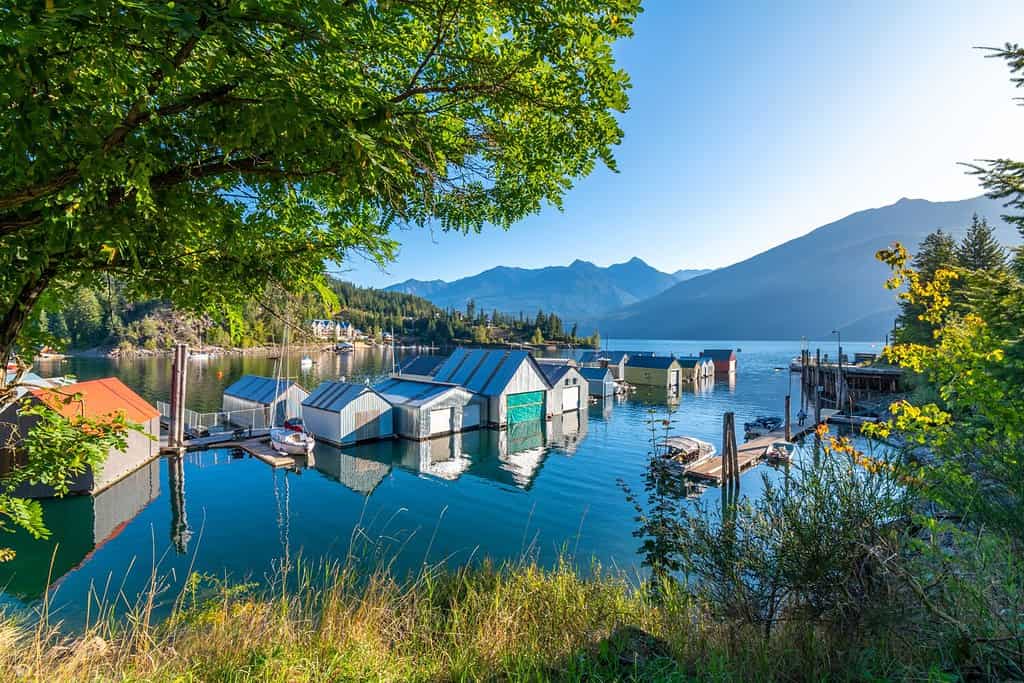
Canada maintains close ties with the United States.
©Kirk Fisher/Shutterstock.com
This entry is America’s neighbor to the north and its staunch ally in many regards. Unlike the United States, Canada has kept tighter cultural ties with their shared parent nation, Great Britain. In fact, Canada is still a British commonwealth, meaning that the Queen of England is still the de facto head of state in Canada.
This rarely, if ever, comes into play in the day-to-day governing of the commonwealth. Rather, Canada is more actively governed by a Prime Minister (an office currently held by Justin Trudeau) and a Parliament. That being said, Britain is still represented in Canada by a figure known as the Governor General, who stands in for the interests of Britain in Canada.
Nowadays, Canada scores very highly in human development indexes. It is considered one of the most highly functioning democracies in the world. It also figures as a peacemaker and diplomat in many international and inter-governmental organizations.
5. The United Kingdom
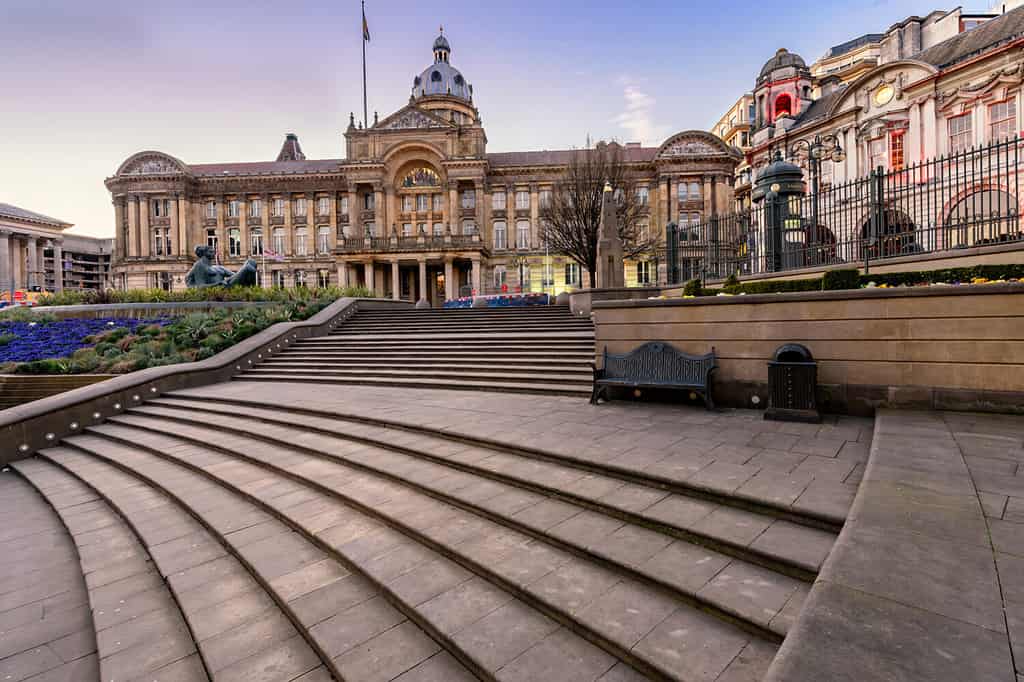
The United Kingdom still has a symbolic monarchy.
©SAKhanPhotography/Shutterstock.com
Many of the other entries on this list were made democracies through the process of gaining independence from the British Empire. However, The United Kingdom itself is one of the world’s oldest democracies. It first granted partial suffrage to its citizens in 1884.
Like many of its commonwealths, Great Britain still has a monarch. As such, the Royal Family still plays a significant role in the symbolic political life of the country. However, they don’t wield much power in the nation’s actual affairs.
Great Britain today is governed by a Prime Minister and its houses of Parliament. These governing bodies administer legal and political power throughout the country.
6. Luxembourg
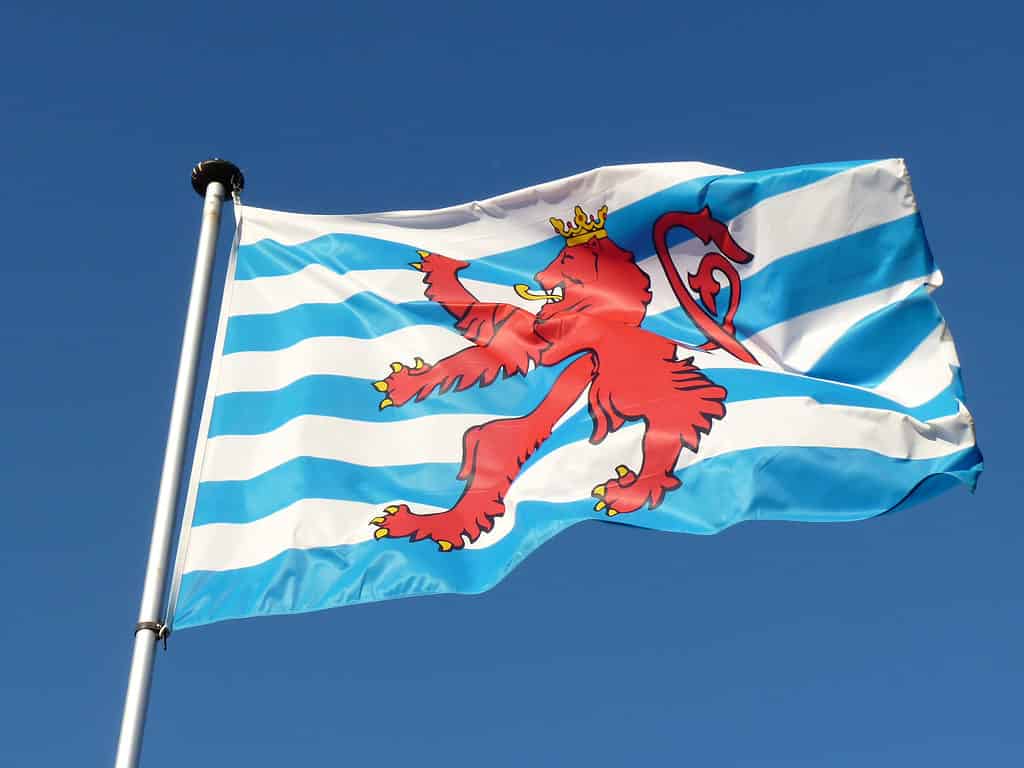
Luxembourg is one of the administrative centers of the European Union.
©iStock.com/bofotolux
This next entry is a tiny, less well-known European country that sits wedged between Belgium, France, and Germany. Luxembourg has a symbolic monarch, along with some of the other entries on this list. Functionally, it operates as a parliamentary democracy.
The country adopted its constitution on October 17, 1868. Power is split in the nation between multiple governing bodies, such as the Chamber of Deputies and the Council of State.
Despite the fact that the country is so small, it’s actually split into a number of administrative districts. There are twelve primary districts, which themselves are split into 102 districts called communes.
7. Belgium
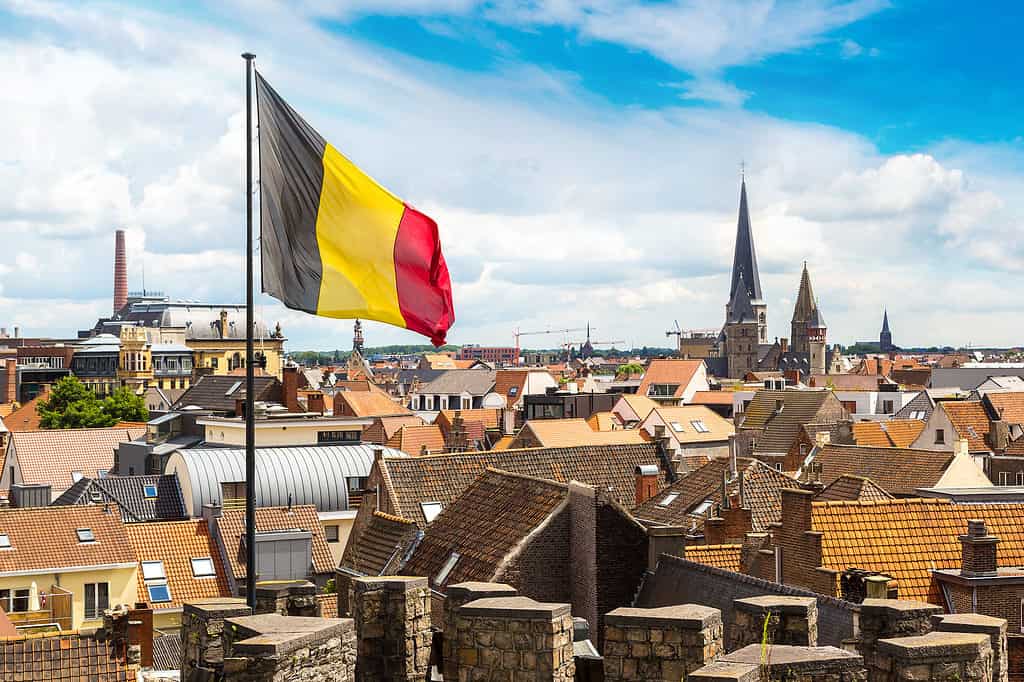
Belgium is home to the capital of the European Union.
©Sergii Figurnyi/Shutterstock.com
Like many of the European entries in this list, Belgium still technically has a monarch. However, this figure serves a purely symbolic purpose in the political day-to-day of the country.
Nestled in between Germany and France, Belgium hosts a strong democratic culture today. It serves as both a constitutional monarchy and a parliamentary democracy. High levels of negotiation skills are needed to keep the country functioning properly. This is because there has long been tension between its Flemmish-speaking and French-speaking communities.
Belgium established itself as a functioning democracy in 1831. Nowadays, it boasts one of the highest voter turnouts in the world – a sign of its citizens’ enthusiasm for the rights they enjoy.
8. The Netherlands
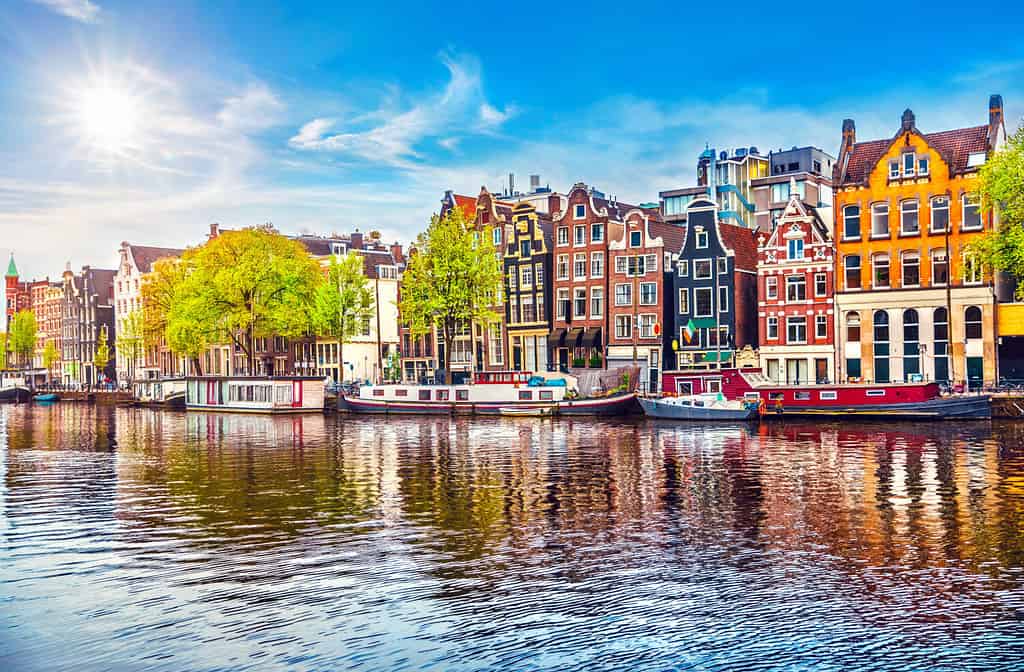
The Netherlands enjoys a very high quality of life.
©Yasonya/Shutterstock.com
Up next is another northern European powerhouse. It’s one that exceeds many other places in general happiness and quality of life.
The Constitution of The Netherlands was crafted in 1815 and was revised in 1848. This is when the country officially became a parliamentary democracy. Like Norway, the country still has a king and queen, although they don’t partake much in the active political existence of the country.
Rather, executive power is administered by a governing body known as The Council of Ministers. This organization shares power with a legislative Senate and House of Representatives.
9. Norway
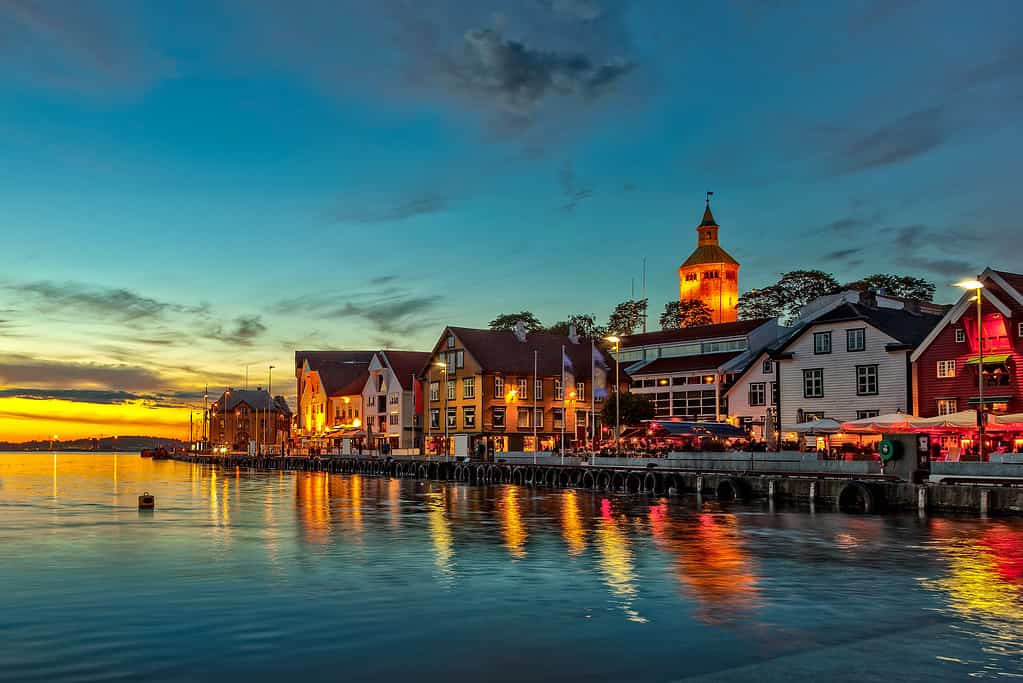
Norway offers its citizens many social benefits.
©nightman1965/ via Getty Images
The Kingdom of Norway is another one of the world’s oldest democracies. Nowadays, it is considered one of the healthiest democratic societies in the world.
It may come as a surprise to many readers that Norway is technically a monarchy, complete with a king. However, like most modern monarchies, Norway’s royal family holds very little real political power.
Norway is renowned throughout the world for the strength of its democratic systems. These provide its citizens with a variety of benefits. Some of these include universal healthcare, free higher education, and a very high general happiness index.
10. Australia
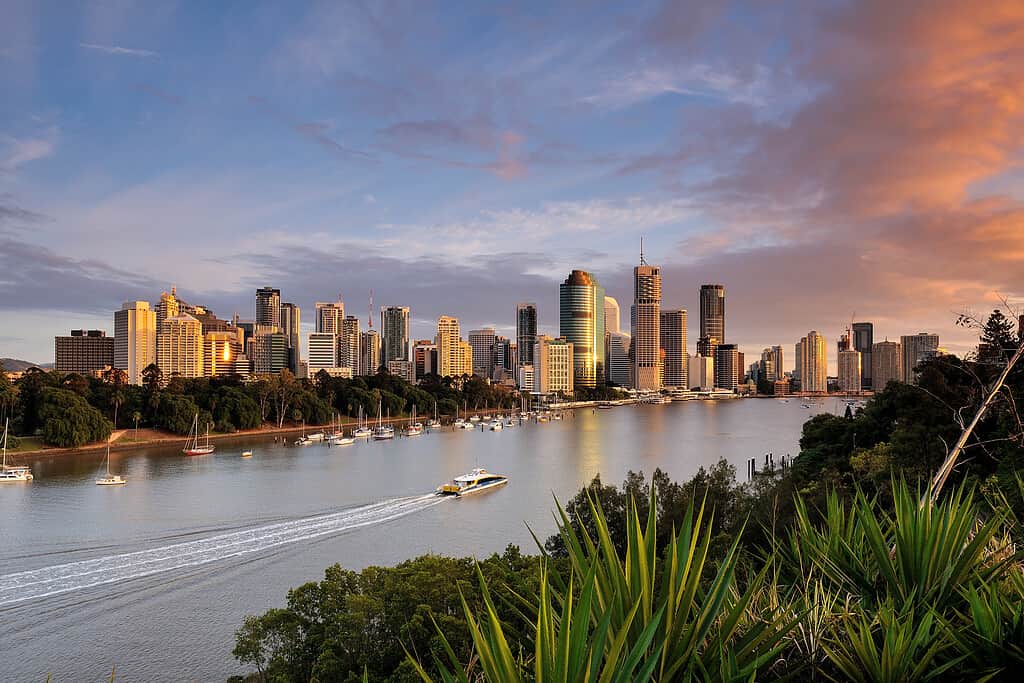
Australia maintains close ties to the United Kingdom.
©MaytheeVoran/iStock via Getty Images
Although this isn’t as commonly understood as with Canada, Australia is actually another British Commonwealth. It retains close ties to the British Government. Like Canada, the British Government is represented in Australia by the presence of a Governor General.
This type of authority rarely comes into play. However, the Governor General can bypass the regards of the Australian Prime Minister in times of crisis.
In times of peace, Australia is ruled concurrently by the Prime Minister and the houses of Parliament. This is done along with the presence of a strong Judiciary branch. The two primary parties in Australia are the Australian Labor Party and the Coalition. These parties represent the center-left and center-right ideologies, respectively.
11. Denmark
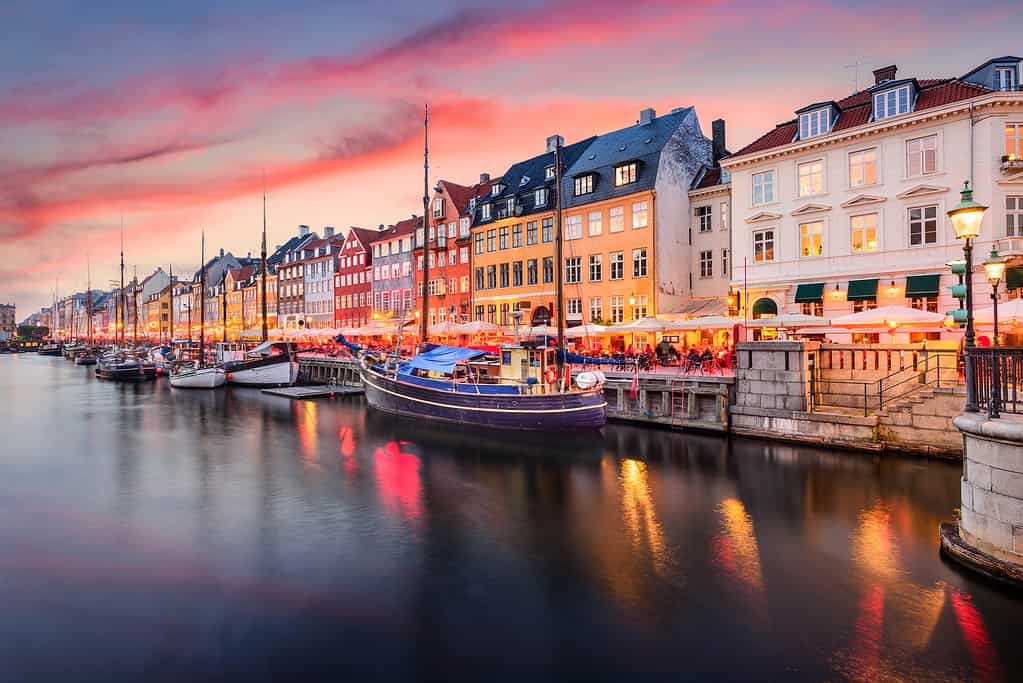
Denmark existed as a monarchy for many centuries.
©SeanPavonePhoto/ via Getty Images
As with many of the preceding entries, Denmark is another hybrid society. It’s a constitutional monarchy blended with a parliamentary democracy.
As is the case with the other European entries in this list, Denmark is one of the healthiest democracies in the world. Its education rates and the well-being of its citizens rank among the highest on the planet.
Denmark established its democratic government in 1849, and it governs the country in a unicameral fashion. Interestingly, this means that there is only one house of Parliament rather than two. The United States is an example of a country that utilizes a bicameral type of Parliament.
12. Sweden
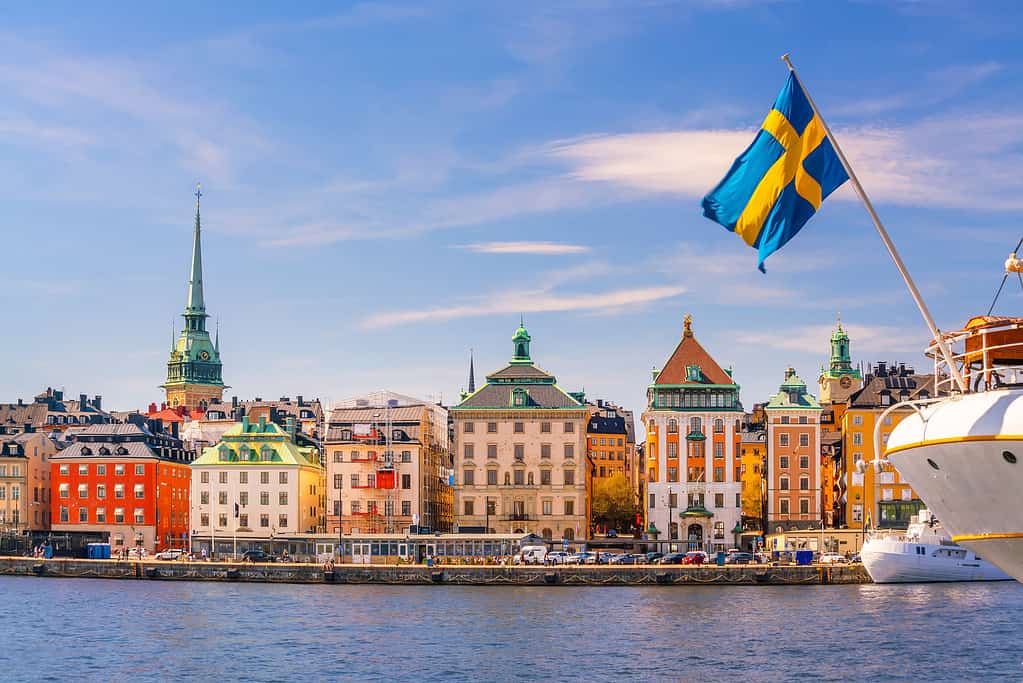
Sweden utilizes the legislative body known as The Riksdag.
©f11photo/iStock via Getty Images
This northern European nation is another constitutional monarchy blended with a parliamentary democracy. It vests its power into a legislative body known as the Riksdag. The Riksdag is a unicameral governing body comprised of 349 members.
Sweden transitioned from a full monarchy into a more democratic form of government in 1911. In the modern era, it is a highly developed country that ranks favorably on the Human Development Index. It is one of the countries to utilize the Nordic Welfare System. This system guarantees universal healthcare and tertiary education for all of its citizens.
13. Finland
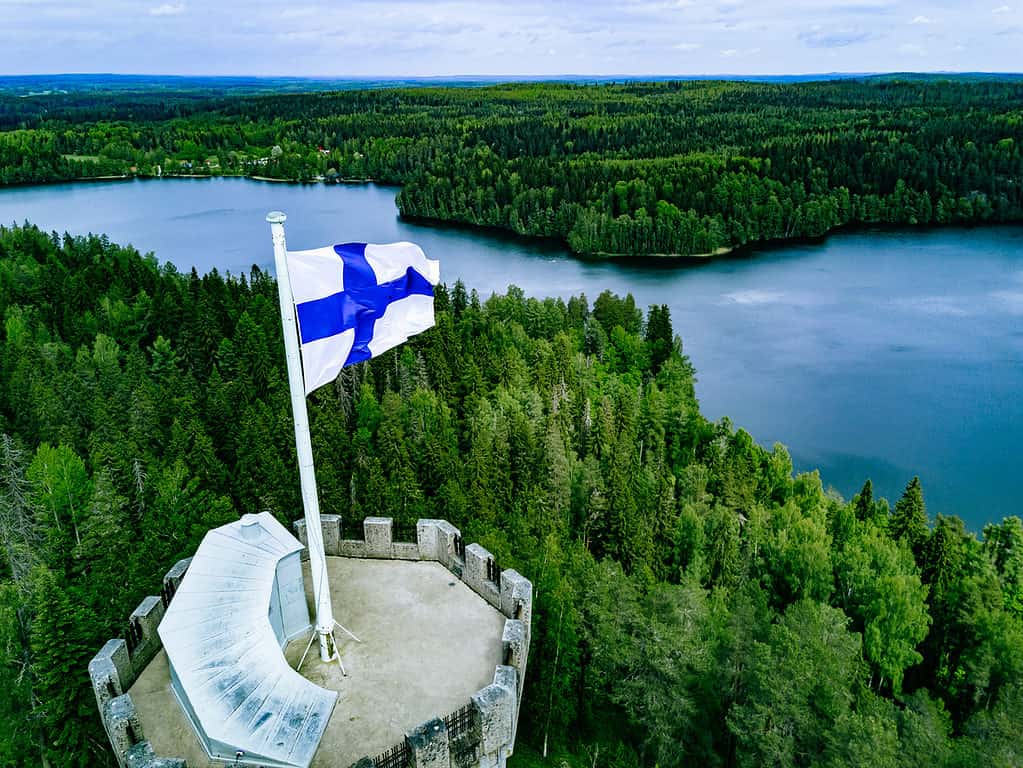
Finland ranks among the least corrupt governments in the world.
©iStock.com/wmaster890
Sweden’s neighbor to the northwest, Finland, established its constitution in 1919, two years after declaring independence from Russia.
Finland has many of the benefits enjoyed by its Scandinavian cousins. The country supports a very high quality of life. Additionally, it also ranks very highly in democracy-friendly characteristics such as education, healthcare, and happiness.
Shared powers govern the country. Among them are the President of Finland, The Prime Minister, The Finnish Parliament, and The Cabinet. Each of these governing bodies carries different responsibilities.
Finland’s democratic nature reflects favorably in public opinion. Studies have found that over 90% of its citizens have faith in the country’s institutions. In addition, Transparency International has ranked Finland as one of the least corrupt countries in Europe.
14. Iceland
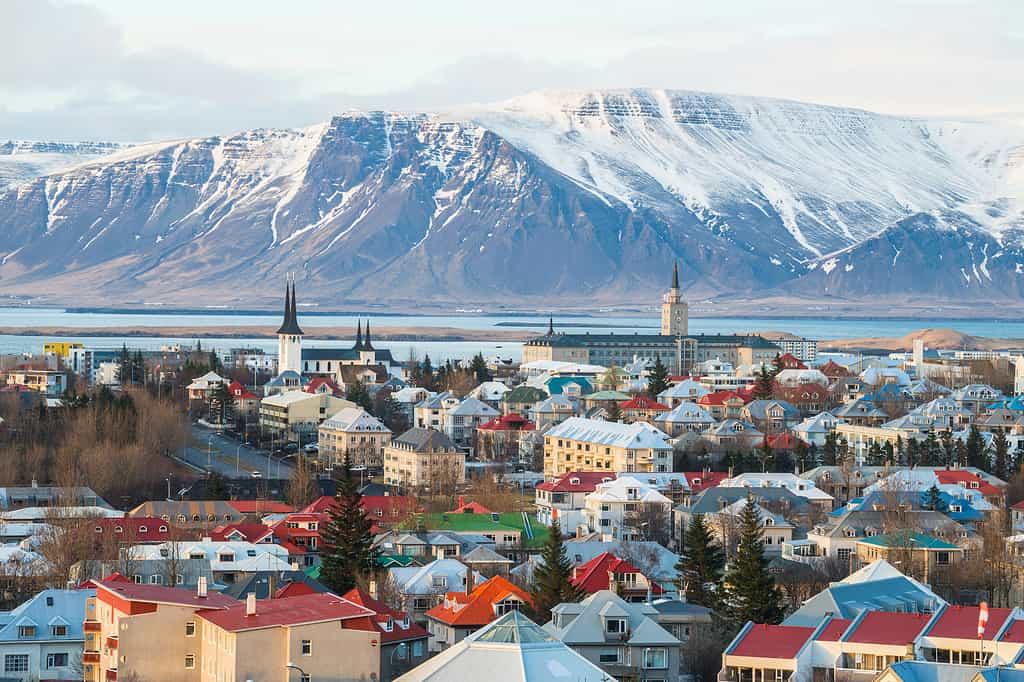
Iceland has a diverse political landscape.
©Boyloso/ via Getty Images
This entry is a small island nation not far from the North Pole. It transitioned from a subject of the Kingdom of Denmark to an independent nation in 1918. Despite its relative isolation, it remains culturally and politically linked to the rest of the European Union.
The country is ruled by a governing body known as the Alpingi, which translates to “general meeting.” In English. The Alpingi contains 63 seats from a variety of political parties. Surprisingly, this legislative body currently contains members from 11 separate political parties. This makes it quite diverse politically in comparison to many other countries.
Undeniably, Iceland is another Scandinavian country that hits hard in terms of supporting an equitable and healthy society. It’s often one of the top-ranked countries in terms of human development and civil liberties.
15. Ireland
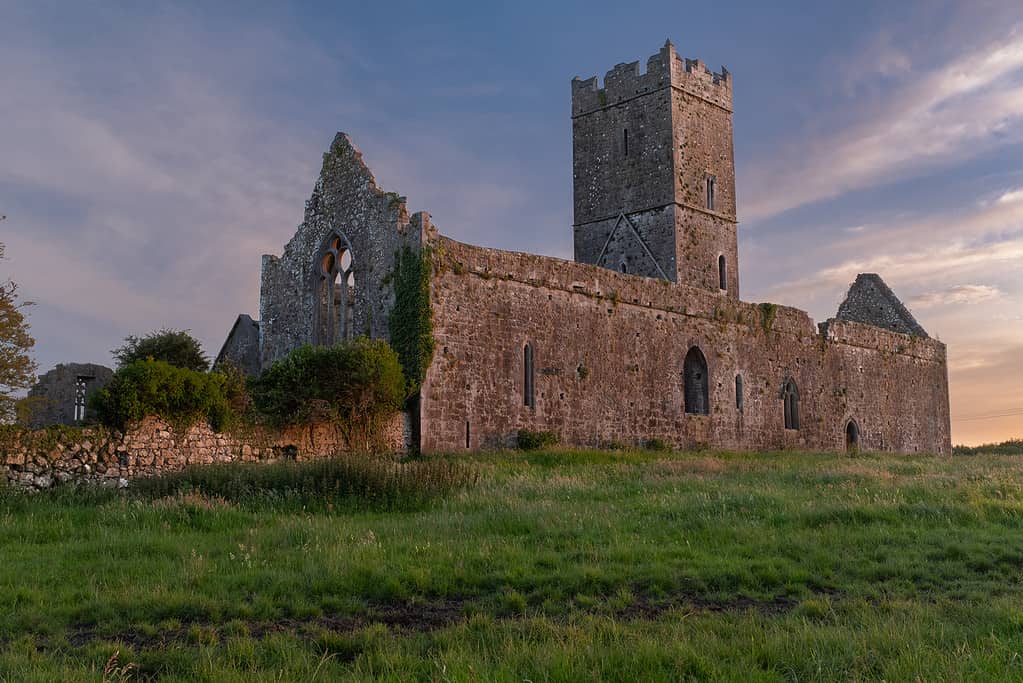
Ireland has a rich culture and a healthy economy.
©2checkingout/iStock via Getty Images
The emerald isle gained its independence from Great Britain in the early 20th century after a period of fierce struggle and bloodshed. Nevertheless, it now enjoys a healthy and independent democratic existence, as well as one of the largest GDPs in Europe.
The government is ruled by a parliament, along with an executive branch. The executive branch is co-ruled by a President and a figure known as a Taoiseach (‘chief’ in Gaelic). The Parliament of the country is named the Oireachtas. The Oireachtas have two chambers: an upper house and a lower house.
The lower house of the Oireachtas answers directly to the citizens of Ireland. The upper house matriculates members from this lower house. Ireland ranks very highly in civil liberties and quality of life, and its infectious culture has gained many footholds around the world in music, literature, and dance.
16. San Marino
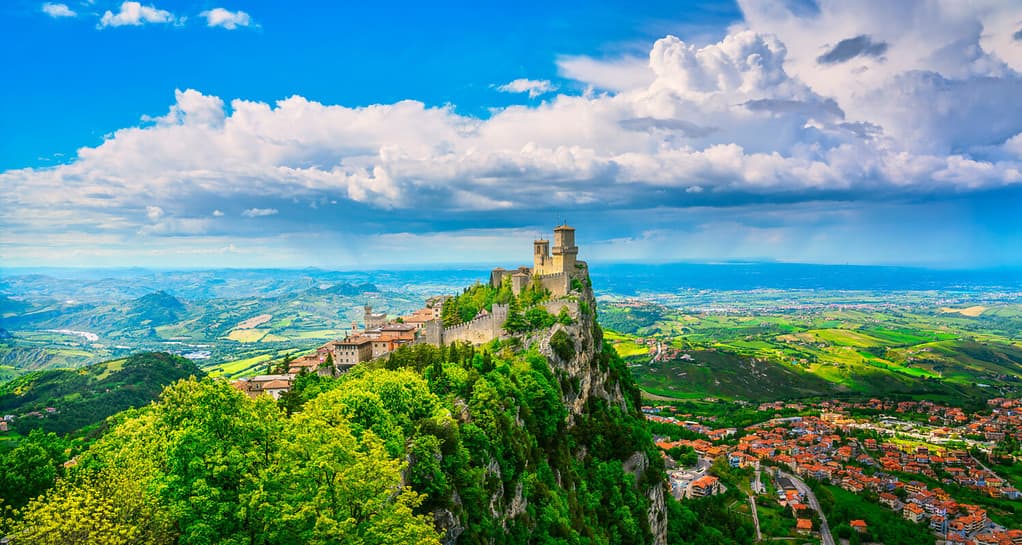
San Marino is one of the first independent states of the modern era.
©StevanZZ/Shutterstock.com
This entry is a unique little place, and like the Vatican City, it’s a country within a country. It exists as a microstate inside of Italy and is the fifth smallest country in the world. The small city-state was founded by the figure Saint Marinus in 301 AD, making it one of the world’s earliest sovereign states.
The country has some of the world’s oldest functioning governing documents. Much of the paperwork that guides its daily affairs dates to the 1600’s.
Multiple institutional bodies govern this minuscule state. These include The Grand and General Council, The Captains Regent, and The Congress of State.
17. Austria
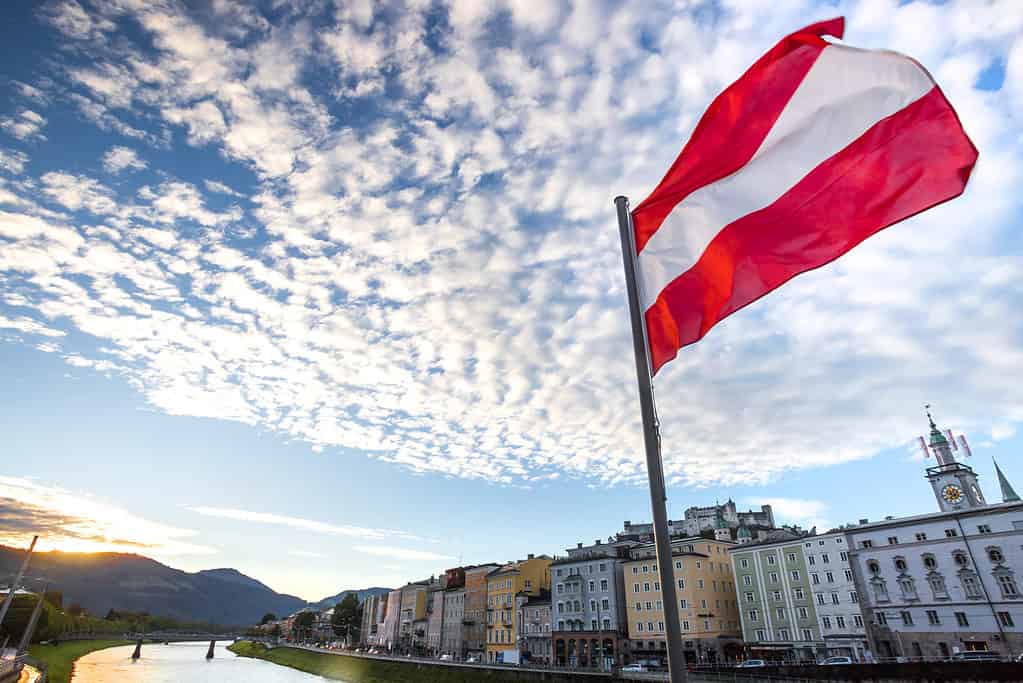
Austria regained independence following WWII.
©iStock.com/Teka77
This entry is a landlocked state in the Bavarian region of Europe. It’s bordered by Germany, the Czech Republic, Slovakia, Hungary, Slovenia, Italy, Switzerland and Lichtenstein. It shares many cultural and historical qualities with those places.
This nation established itself as a democracy in the year 1946, after the Second World War. Nowadays, it functions as a parliamentary representative democracy.
The Parliament of Austria contains two chambers – a federal council and a national council. Each council carries with it separate responsibilities with regard to the functioning of the state.
Austria shares some qualities with some of the other entries on this list in that it has some features of direct democracy. The citizens of this country have the power to independently vote on and veto pieces of legislation developed by their elected representatives.
18. France
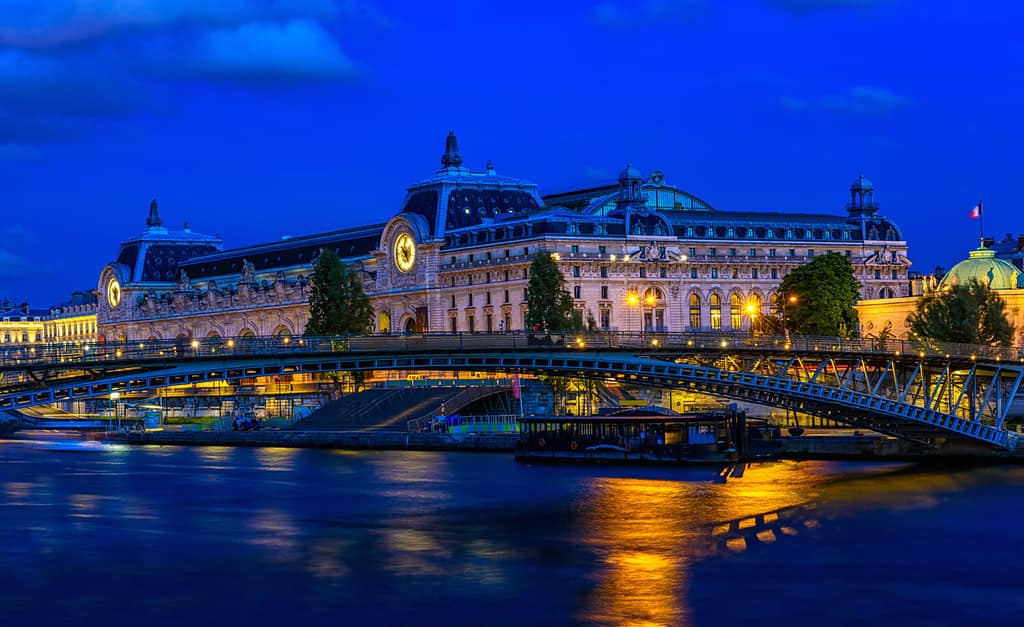
France is one of the architects of modern democracy.
©Catarina Belova/Shutterstock.com
It’s a bit tricky to pinpoint exactly when France became a democracy. This is due to the seismic shifts that have occurred in its governance over the course of the centuries. Many, however, point to the formalized emergence of a democratic republic around 1946. This followed its liberation from Germany after the Second World War.
What is certain is that along with the United States, France is one of the architects of modern democratic thought. This came about through the efforts of the French Revolution and documents such as the Declaration of the Rights of Man and of the Citizen. France has had a very high influence on the history of democracy at large.
These values still hold much weight in the country. It’s one that prides itself on its traditions in regard to respecting the inalienable rights of man.
The Future of Democracy
Around 200 years ago, democracy was a relatively rare form of government, and very few people enjoyed its benefits. Many countries around the world now embrace the advantages that it brings.
Conversely, despite these positive gains, the last 10 years have seen an opposite pull occur. Many countries are backsliding towards more autocratic forms of government. This has had negative consequences for the health and human rights of those places.
The future of democracy is dependent on healthy participation from those who adhere to it. Accordingly, the quality and state of democracy around the world are only as strong as the participation levels of its most important constituents – its citizens.
| Number | Name | Date Founded |
|---|---|---|
| 1 | The United States | 1789 |
| 2 | Switzerland | 1848 |
| 3 | New Zealand | 1857 |
| 4 | Canada | 1867 |
| 5 | The United Kingdom | 1885 |
| 6 | Luxembourg | 1890 |
| 7 | Belgium | 1894 |
| 8 | The Netherlands | 1897 |
| 9 | Norway | 1900 |
| 10 | Australia | 1901 |
| 11 | Denmark | 1901 |
| 12 | Sweden | 1911 |
| 13 | Finland | 1917 |
| 14 | Iceland | 1918 |
| 15 | Ireland | 1922 |
| 16 | San Marino | 1945 |
| 17 | Austria | 1946 |
| 18 | France | 1946 |
Thank you for reading! Have some feedback for us? Contact the AZ Animals editorial team.

